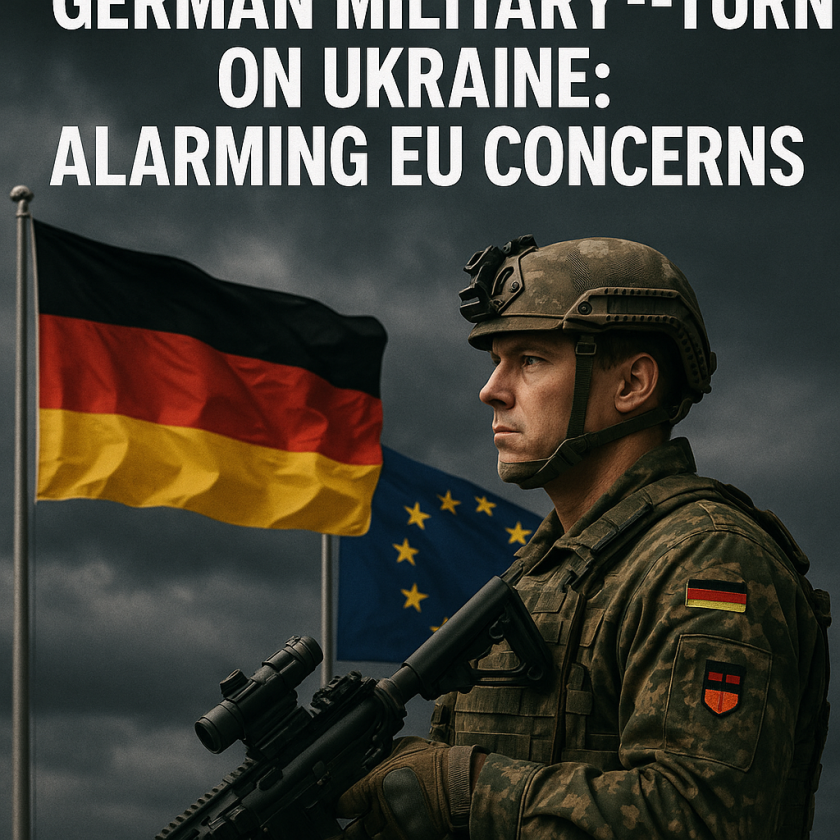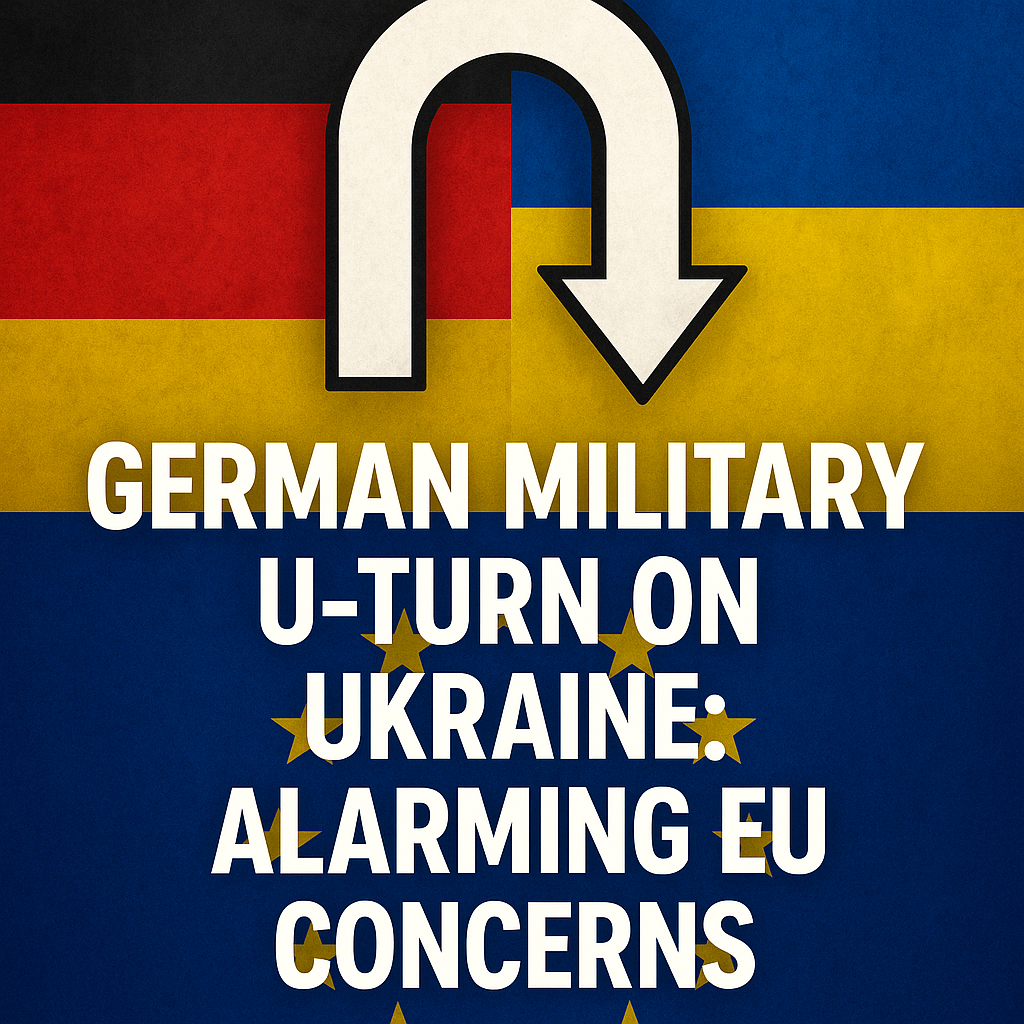German Military U-Turn on Ukraine: Alarming EU Concerns
German Military U-Turn on Ukraine: Alarming EU Concerns
The recent shift in German military policy regarding its support for Ukraine has raised alarm bells within the European Union (EU). This change not only threatens to alter the dynamics of the ongoing conflict but also sparks worries among EU member states about the implications of Germany’s stance.
A New Chapter in Germany’s Military Involvement

Germany has long been viewed as a crucial player in the EU’s response to Russia’s military aggression. Traditionally known for its caution in military matters, it began to step up its support for Ukraine after the invasion began in 2022. However, reports from multiple sources indicate a significant contradictory shift is now underway.
While German officials had previously pledged substantial military aid, including tanks and ammunition, there are growing concerns that this support may wane. A report from RT highlights fears among EU representatives that this could embolden Russia and destabilize the region further. The German government appears to be reconsidering its military commitments, citing factors such as domestic opposition to escalating military involvement and the need for reassessment of its foreign policy principles.
Divergence of Views Within the EU
Responses to Germany’s military U-turn are not uniform across the EU. Some member states express strong support for maintaining robust military aid to Ukraine, arguing it’s essential for deterring Russian aggression. Al Jazeera reports that countries like Poland and the Baltic states have been particularly vocal in urging continued support, fearing that any reduction could lead to an emboldened Russian agenda in Eastern Europe.
Conversely, other EU members, including France and Italy, have adopted a more cautious approach, highlighting the need for diplomatic solutions alongside military support. The complexity of opinions within the EU underscores that while the collective response to Russia has been largely cohesive so far, cracks are beginning to show as member states navigate their own national interests alongside broader European security concerns.
This divergence not only illustrates the varied geopolitical landscapes within the EU but also the challenges in arriving at a unified strategy that balances military aid with diplomatic negotiations.
Consequences of the U-Turn: A Ripple Effect
Germany’s potential decline in military support poses multiple risks, primarily regarding the security framework in Eastern Europe and the unity of the EU. A diminishing German role may lead to an uneven distribution of military resources and strategic confidence among EU nations. Concerns extend beyond the immediate impact on Ukraine; analysts warn that weakened resolve in Berlin could have cascading effects across Europe, impacting the EU’s overall deterrence posture against Russian aggression.
Leadership within NATO has expressed anxiety over the possibility of a fragmented approach to the conflict. Leaders in NATO recognize that a unified response is critical not only for Ukraine but for maintaining stability in Europe as a whole. Inconsistent support could embolden adversarial nations, creating an environment where aggression could escalate, threatening not just Ukraine but multiple EU nations.
Balancing Act: The Path Forward
As discussions unfold, both within Germany and throughout the EU, the challenge will be to find a balance between supporting Ukraine militarily and managing domestic political pressures. Germany’s historical reluctance to engage militarily can offer valuable lessons about restraint and the importance of long-term strategic thinking.
The situation underscores a pressing need for a more coherent and unified European strategy that appreciates the intricacies of each nation’s political landscape while prioritizing collective security. Continued dialogue among EU members may be necessary to address underlying concerns and establish a coordinated approach that aligns military aid with diplomatic efforts.
In conclusion, the implications of Germany’s military pivot cannot be understated. This alarming development calls for a response that is both immediate and strategically sound, ensuring that Europe remains unified in its efforts to support Ukraine while navigating the complex realities of international relations. The coming months will be telling as the EU seeks to re-establish a consensus that upholds both its security interests and its commitment to partnership with Ukraine.






































